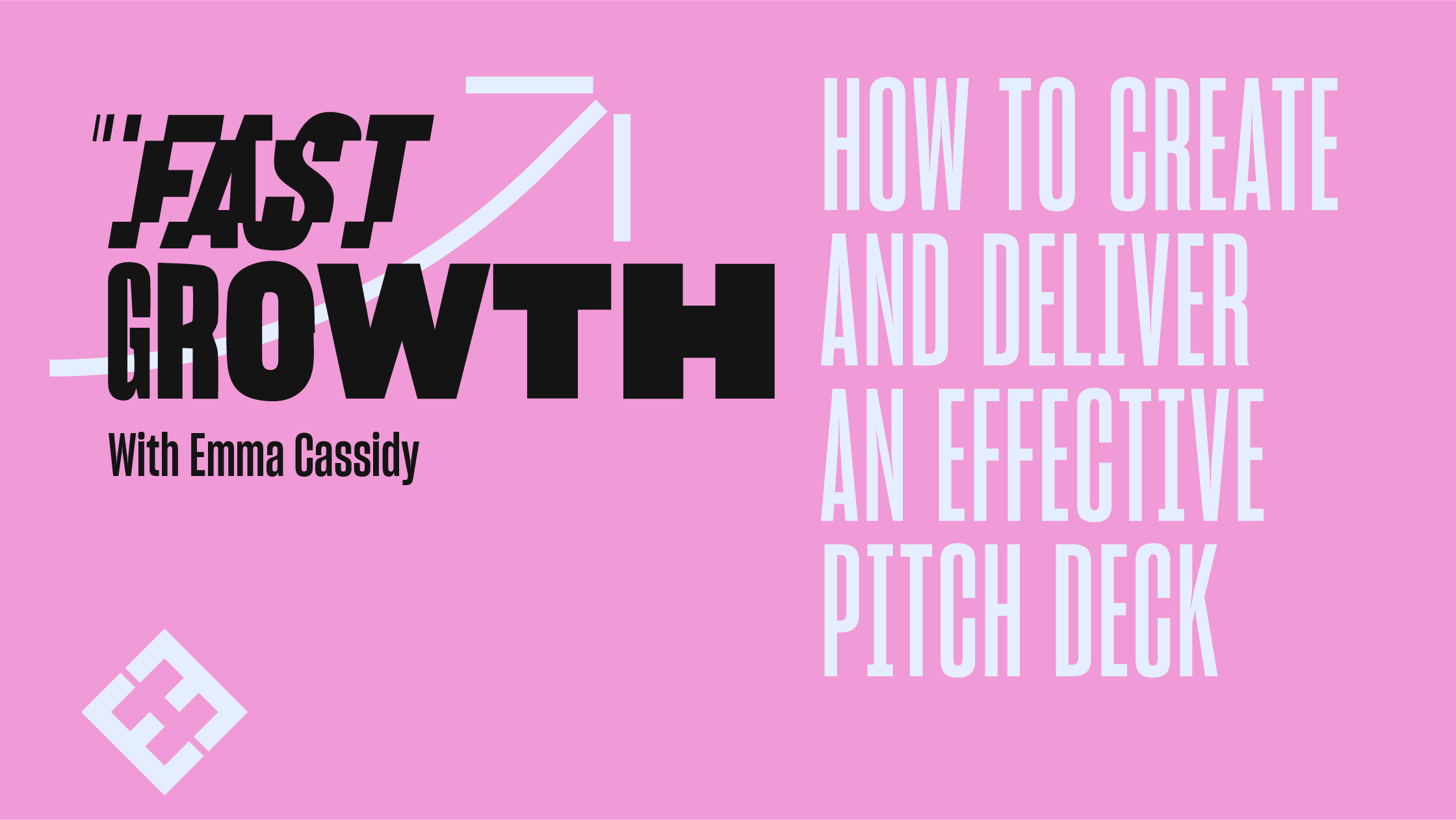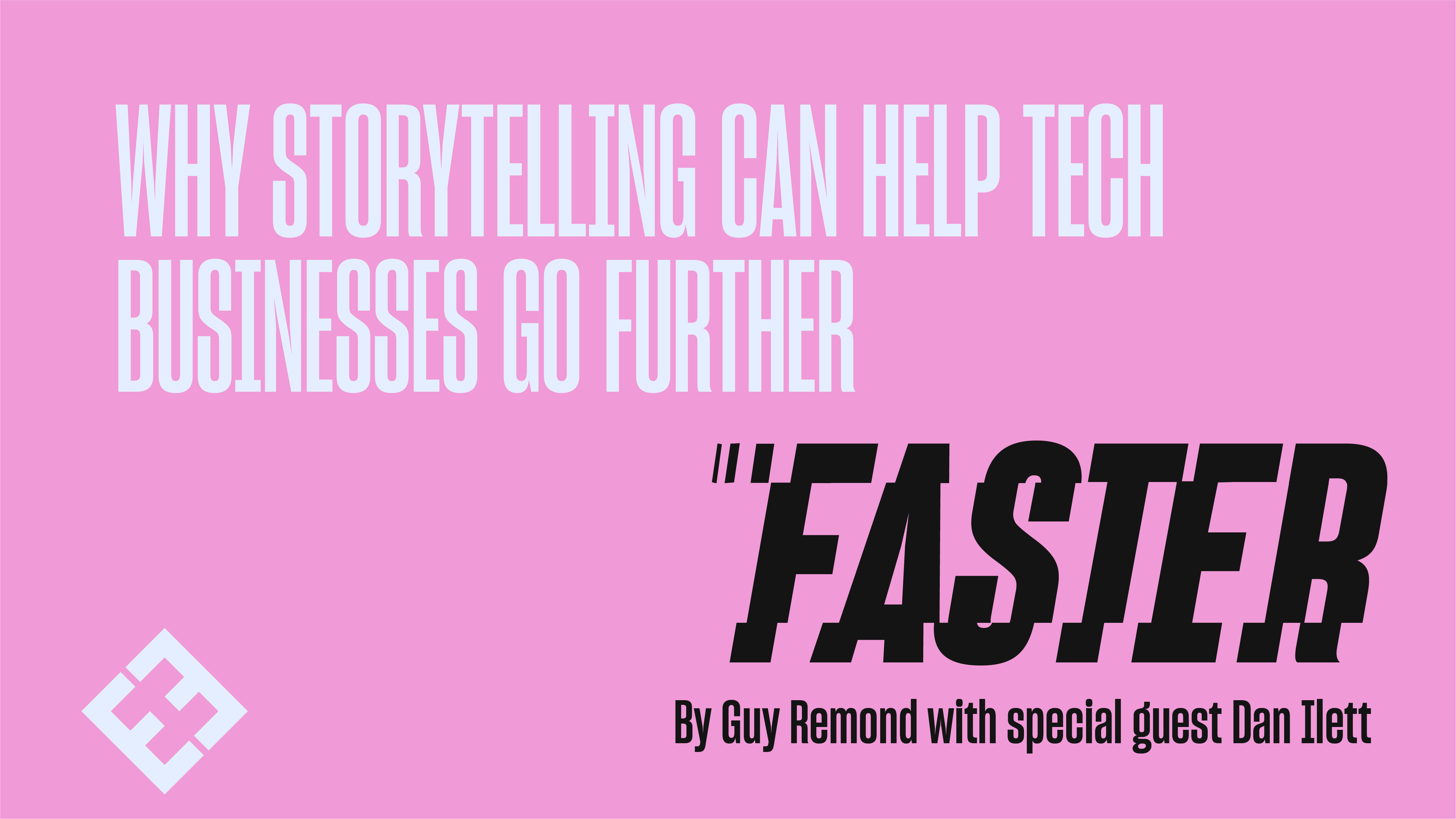Why Storytelling Can Help Tech Businesses Go Further, Faster
By Guy Remond with special guest Dan Ilett
4 min read
Pete Evison : Jun 13, 2023 10:00:00 AM

Creating and delivering a compelling pitch deck can be one of the hardest parts of being an entrepreneur. With most investors reviewing hundreds of pitch decks a month, how do you make sure yours stands out?
Recently on the Fast Growth Stories podcast, we were joined by Emma Cassidy, Investment Executive at DSW Ventures. You can listen to the full conversation here.
Emma has a wealth of experience when it comes to reviewing pitch decks, particularly from tech founders. She was able to help us answer two key questions that we often get from entrepreneurs: What makes a compelling pitch deck? What are investors really looking for?
While there’s no one-size-fits-all approach to delivering an effective pitch deck, there are a few green flags that investors typically look out for:
Emma: “It sounds obvious but the deck needs to tell me what the company does and the problem you’re solving. We receive a surprising amount of pitch decks where we can’t work out exactly what the Unique Selling Point (USP) is.
It’s mainly because the people writing the deck know the company, industry, and the market – and they assume that everyone else gets it. But there’s a lot of things that we’ve never come across before; and if it’s taking our team too long to work out the business’ USP, it’s not a good first impression. We think: how can this person sell to customers if they can’t explain what they do in a deck?”
It’s clear that your pitch deck needs to be succinct, digestible, and understandable. While investors will definitely want to delve deeper into the technical bits at the later stages, your first impression (which is the pitch deck) should be jargon-free and simple.
As Emma points out, investors shouldn’t need a PhD just to understand what your business does!
And this leads us to another key point: the length of your deck.
Emma: “There’s no need for a pitch deck to be more than around 20 slides. I’ve received pitch decks before with 70 slides. To put it into context, we receive over 200-250 pitches a month. We don’t have the time to review 70 slides for each one of those pitches. So, I think founders just need to remember to be concise and get the key message across.”
Emma: “During our internal review meetings, we tend to go over a few key questions. Obviously, we begin with the most basic ones:
- What do they do?
- Is this a problem that exists?
- Is there a big market for this problem?
- Do the founders look like they’ve got the right experience behind them for this market?
- Does it sound defensible? Is there any IP?
“We have a pre-screening process where we’ll get rid of any decks that don’t fit our criteria at all. Essentially, we try to determine how many of our boxes the deck ticks and how it weighs up against the concerns/unknowns.”
It’s important for founders to do the due diligence before sending out their pitches. Adopting the spray-and-pray method (blindly sending out your deck to numerous investors) only leads to wasted energy and despondency, especially if most of those investors weren’t going to invest anyway.
Do your homework and make sure that your business actually fits into their portfolio before sending out your pitch.
While your pitch deck is certainly important, there are other bits and pieces worth keeping an eye on if you’re seeking funding and fast growth. Emma was able to shed some light on what these are:
It can be hard to juggle all the balls at once when it comes to seeking investment . However, having all these best practices in place will stand you in good stead. As Emma pointed out, even if the investment doesn’t progress, you’d have made a lasting impression (for the right reasons) on the investor.
At EHE, we work with both entrepreneurs and investors – we are all about supporting entrepreneurs. If you want someone to walk you through your pitch deck, let’s talk!
Join our community of entrepreneurs to get access to key resources around business growth, and let’s talk if you’d like to learn more about the specific support we offer at EHE Group.

By Guy Remond with special guest Dan Ilett

With special guest, Kiran Mehta